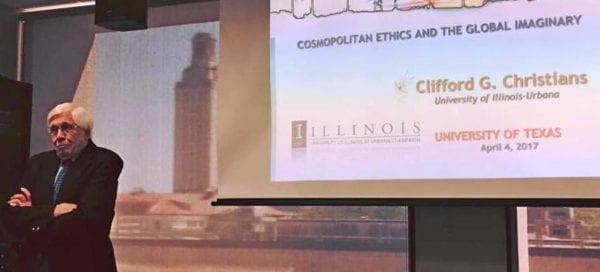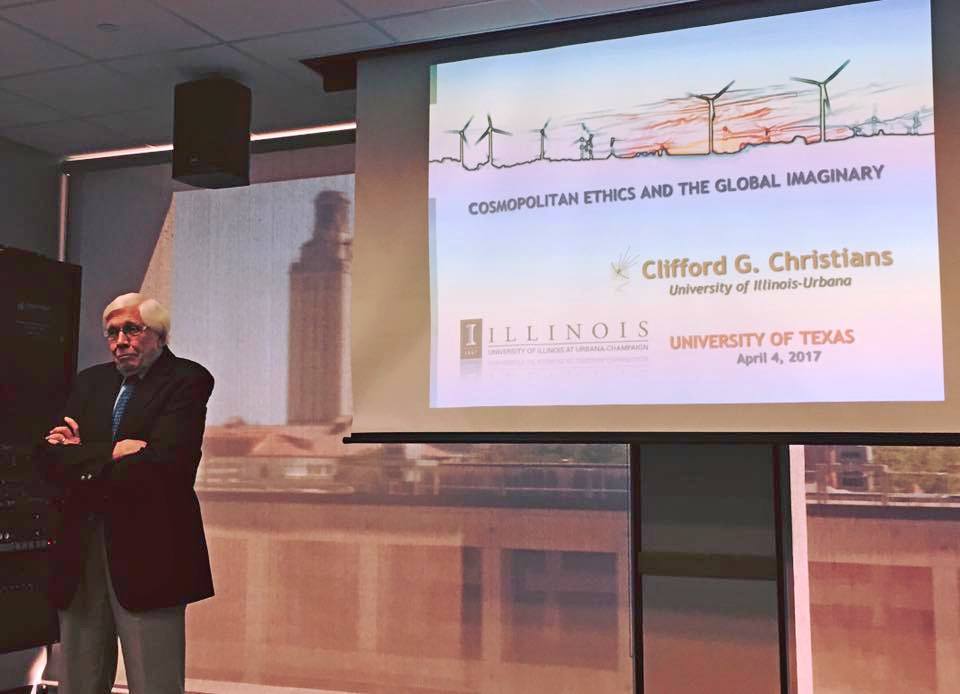
The Media Ethics Initiative Presents:
Cosmopolitan Media Ethics and the Global Imaginary
Research Professor of Communications
University of Illinois at Urbana-Champaign
April 4, 2017 — 3-4:30PM — Room: CMA 5.136 (LBJ Seminar Room)
In this research talk, Clifford Christians explores how media ethics must change to meet the demands of new communication technologies. Today’s information era, with upheavals across the globe, requires a new theory of communication ethics. Our cosmopolitanism cannot be a neoliberal arc or homogenous technological network, but a multicultural transnational imaginary. What is a media ethics of universal human solidarity, philosophically and professionally?
Media ethics to be credible must be radically international. The technological revolution has created a networked globe, so that the world mind is no longer for the elite, but a possible imaginary for the public as a whole. For media ethics, in theory and in institutions, it means more than extending one’s individual autonomy to envision the globe. The nation-state boundaries and homogeneity of Habermas and Rawls is also inadequate. An ethical theory will be presented that originates in universal human solidarity and entails basic principles such as truth, human dignity, and nonviolence. The necessary concepts for constructing this theory are located in Taylor’s multiculturalism, Benhabib’s feminist universalism, and Heidegger’s dwelling.
Dr. Clifford Christians is one of the leading voices in the study of media ethics. He is a research professor of communication at the University of Illinois at Urbana-Champaign, where he also served as the former director of the Institute of Communications Research. He has been a visiting scholar in philosophical ethics at Princeton University, a research fellow in social ethics at the University of Chicago, and a fellow in ethics at Oxford University. He has authored or co-authored many scholarly books, including Good News: Social Ethics and the Press, Communication Ethics and Universal Values, Moral Engagement in Public Life, Normative Theories of the Media, and Key Concepts in Critical Cultural Studies.
Free and open to the UT community and general public
For further information, contact Dr. Scott Stroud



